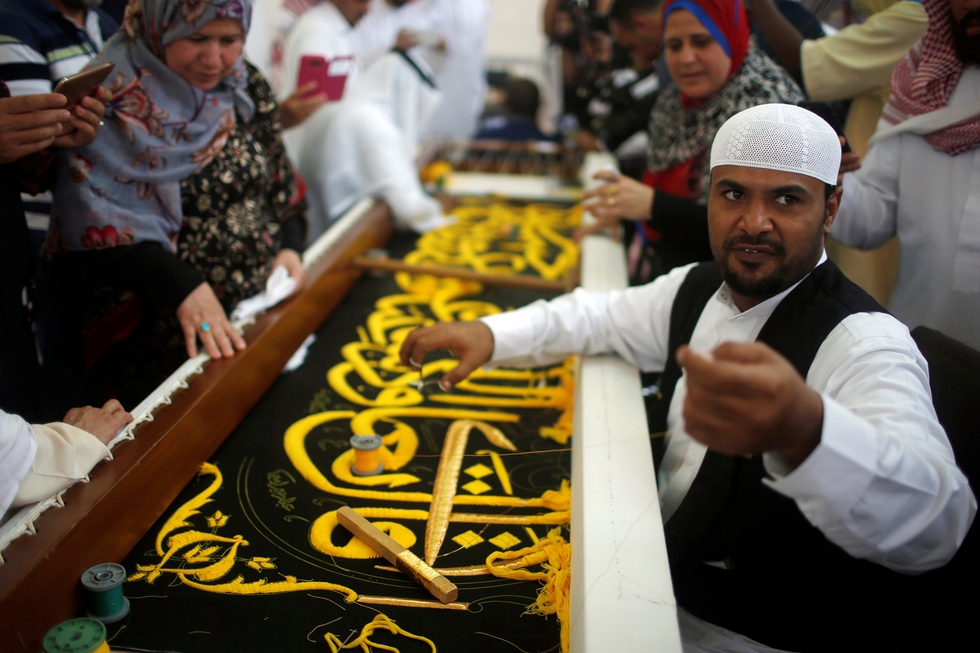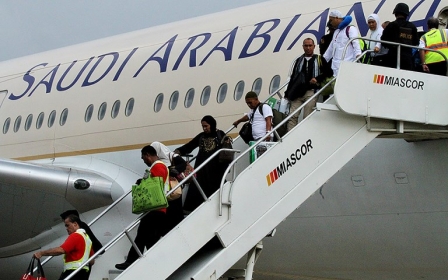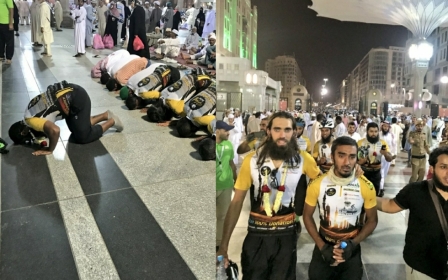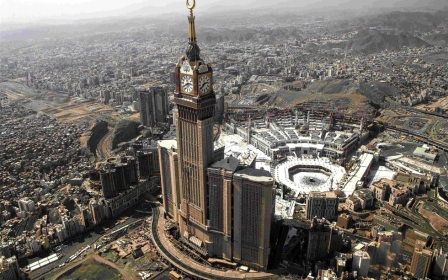Saudi factory stitches gold-laced cover for Islam's holiest site

Dozens of Saudi craftsmen, mostly in their 40s and 50s, are at work in a factory in Mecca preparing an embroidered black and gold cloth to cover the Kaaba, the holiest site in Islam.
Known as the kiswa, the cloth is woven from silk and cotton and adorned with verses from the Quran. A new one is made each year to be placed on the Kaaba in Mecca's Grand Mosque during the annual Muslim haj pilgrimage, which begins on Wednesday.
Many of the craftsmen have worked in the factory in the Oum al-Jood district of Mecca all their lives, but as they approach retirement a new generation is being trained to carry on the trade.
General manager Mohammed bin Abdullah Bajuda said King Salman had ordered all the machines, which were introduced some 30 years ago, to help automate the process, to be replaced with newer ones by next year.
“He also called for a new cadre of manufacturers to take the place of the current one,” Bajuda said during a visit to the factory on Saturday.
A cube-shaped stone structure, the Kaaba is a focal point of the haj, during which some two million pilgrims walk around it in a mass ritual.
When Muslims anywhere say their prayers five times a day, it is towards Mecca and the Kaaba that they face.
The Kaaba's black stone was revered even before the birth of Islam. Muslims believe it was originally built by the prophet Ibrahim, the Biblical Abraham, on the site of the first house of worship built by Adam. It has since been rebuilt more than once.
'The best feeling'
New MEE newsletter: Jerusalem Dispatch
Sign up to get the latest insights and analysis on Israel-Palestine, alongside Turkey Unpacked and other MEE newsletters
Middle East Eye delivers independent and unrivalled coverage and analysis of the Middle East, North Africa and beyond. To learn more about republishing this content and the associated fees, please fill out this form. More about MEE can be found here.




